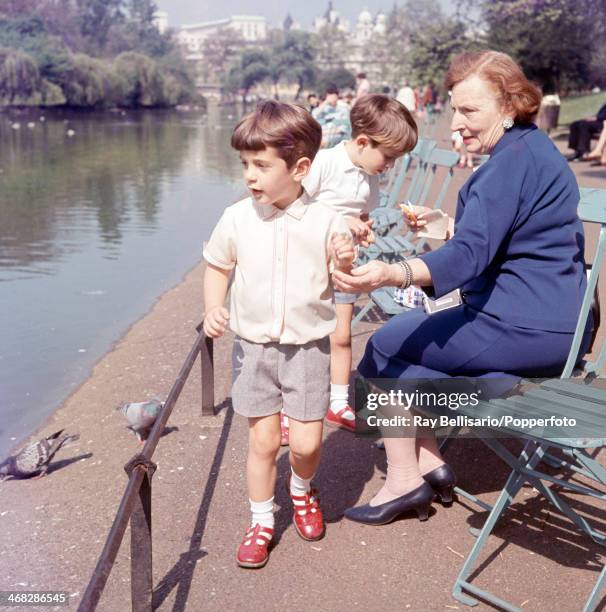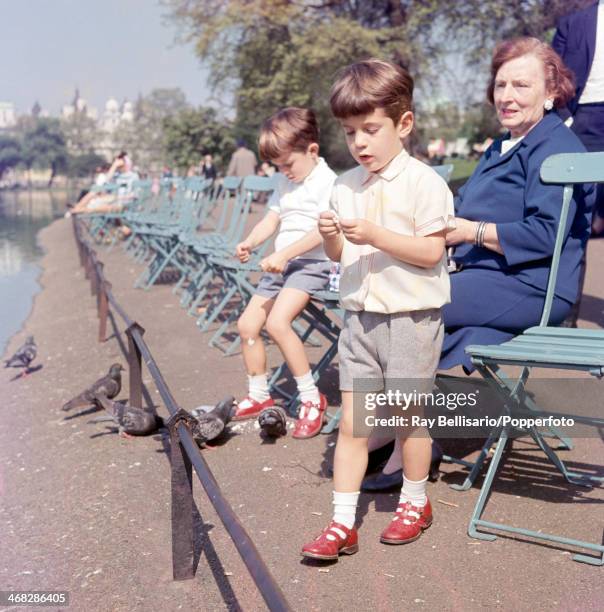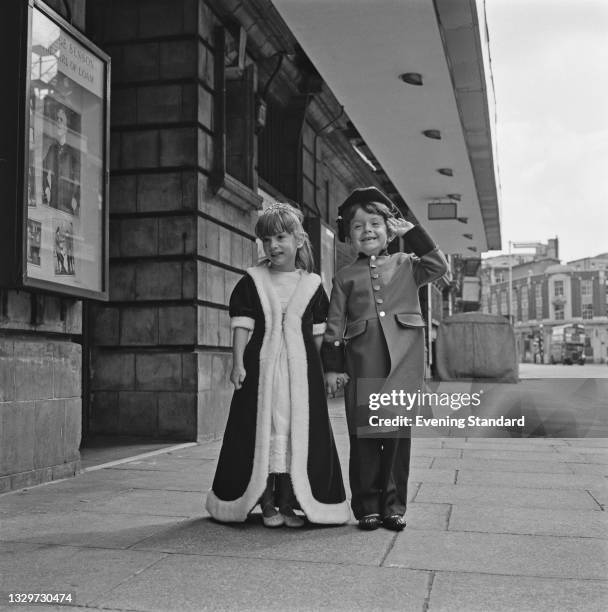Missing: John F. Kennedy Jr. & Anthony Radziwill Story - Details
Can a whisper across time still echo with the weight of unspoken words? The intimate exchange between John F. Kennedy Jr. and his cousin Anthony Radziwill, a private moment preserved in a photograph from the summer of 1971, speaks volumes even now.
The image, a fragment of a larger narrative titled Telling a secret to Anthony Radziwill, his cousin he st, captures a fleeting intimacy, a shared confidence perhaps, or a youthful conspiracy hatched under the summer sun. The title itself hints at the depth of the connection between the two young men, suggesting a bond built on trust, shared experiences, and the unspoken language of family. The very act of confiding, of sharing a secret, underscores the profound human need for connection and understanding. It is a snapshot of vulnerability and resilience, a testament to the enduring power of human relationships, all the more poignant considering the later trajectories of their lives, both marked by tragedy and public scrutiny.
| Attribute | Details |
|---|---|
| Full Name | John Fitzgerald Kennedy Jr. |
| Born | November 25, 1960, Washington, D.C. |
| Died | July 16, 1999, off the coast of Martha's Vineyard, Massachusetts |
| Parents | John F. Kennedy, Jacqueline Kennedy Onassis |
| Siblings | Caroline Kennedy |
| Education | Brown University, B.A.; New York University, J.D. |
| Profession | Lawyer, Journalist, Publisher |
| Career Highlights | Founder of George magazine, Assistant District Attorney in New York City. |
| Spouse | Carolyn Bessette-Kennedy |
| Known For | His lineage, public image, and untimely death. |
| Reference Website | The John F. Kennedy Presidential Library and Museum |
The summer of 1971, the setting of the photograph, was a period of transition. The Kennedy name, still resonating with the echoes of Camelot, was also grappling with the aftermath of tragedy. John Jr., barely a boy, carried the weight of a legacy, navigating the complexities of public life and private grief. Anthony Radziwill, also a scion of a prominent family, understood the unique pressures and privileges that came with their shared heritage. Their close relationship, forged in shared experiences, became a source of solace, a safe harbor from the storm of public scrutiny. The "secret" they shared might have been a childhood prank, a youthful aspiration, or a profound understanding of the world that only they, as cousins, could truly comprehend. It embodies the quiet resilience that often defines the most important human connections.
The photograph itself, or at least the conceptual framework of the piece, offers a glimpse into the artistic sensibilities of the unnamed photographer, highlighting the potential for visual storytelling and the narrative power of a single image. It hints at a larger story, a project or series that delves into the complexities of human relationships, capturing moments of intimacy, vulnerability, and the fleeting beauty of everyday life. It is a subtle critique of the way we perceive and remember, suggesting that the unspoken words and fleeting glances can often tell a more compelling story than the grand pronouncements of history. The very act of labeling it Telling a secret invites the viewer to ponder the nature of secrets, the burdens they carry, and the intimacy that comes with sharing them.
Consider the broader context of the time. The early 1970s was a period of significant social and political upheaval. The Vietnam War raged on, the Civil Rights Movement continued its fight for equality, and the cultural landscape was undergoing a dramatic transformation. Within this context, the photograph of John Jr. and Anthony, with its potential themes of family, loss, and the search for meaning, takes on an added layer of resonance. It suggests the quiet strength and fortitude needed to navigate a complex and sometimes turbulent world. Their shared moment stands in stark contrast to the clamor of the outside world, offering a glimpse of the calm and quiet companionship that can be a refuge in the face of societal turmoil.
The choice of Martha's Vineyard as a setting, the location of the photograph's moment or the subsequent tragedy, is significant. The island, a haven for the wealthy and the famous, has long represented a world of privilege and seclusion. However, it also offers a natural beauty and a sense of escape. The beach, a place of both serenity and impermanence, provides the ideal background to emphasize the delicate balance between public lives and private moments. The act of standing on the sand, with the vast ocean as a backdrop, could be interpreted as a metaphor for the challenges of navigating the complexities of their lives against a backdrop of relentless public scrutiny.
The photograph's enduring appeal likely lies in its universal themes. It speaks to the fundamental human need for connection, the importance of family and friendship, and the enduring power of memory. The specific context of the Kennedy and Radziwill families only enhances the story, providing an added layer of intrigue and historical significance. It is a reminder that even the most public figures are, at their core, human beings, seeking connection, sharing experiences, and facing the challenges of life just like everyone else. This intimate exchange, captured in a photograph, becomes a poignant reflection on the human condition.
The photograph, or the concept of it, also challenges us to consider the nature of historical documentation. The act of capturing a fleeting moment, preserving it for posterity, raises questions about the selection process and the potential for interpretation. What is left out of the frame? What is the photographer's intention? How does the image shape our understanding of the past? The very limitations of photography, its inability to capture the full complexity of a moment, force us to become active participants in the process of meaning-making, adding our own experiences and perspectives to the story.
John F. Kennedy Jr., and Anthony Radziwill were both figures who lived under intense public scrutiny. John's lineage placed him in a spotlight from birth, while Anthony, with his own family history and social connections, was also a subject of public interest. This shared experience may have fostered a unique bond, an understanding of the pressures and challenges of their respective lives. They were united by lineage, but also by a shared understanding of the privileges and the burdens that came with their families' legacies. This shared experience, perhaps, is the essence of the secret revealed in the photograph.
The tragedy of John F. Kennedy Jr.'s death in 1999, along with his wife Carolyn Bessette-Kennedy and sister-in-law Lauren Bessette, added another layer of poignancy to the narrative. The photograph now serves as a reminder of lost potential, of lives cut short, and of the enduring power of memory. It transforms into a testament to the fragility of life, highlighting the importance of cherishing relationships and the fleeting nature of time. The image, along with its title and associated memory, now represents more than just a fleeting moment of childhood; it became a symbol of the enduring power of human connection.
In essence, the photograph or the concept of it is a mirror, reflecting the viewer's own experiences and perspectives. It is a reminder that the moments of intimacy and connection, the shared secrets and unspoken understandings, are the cornerstones of human experience. By focusing on the relationship between two individuals, it provides a powerful counterpoint to the grand narratives of history, reminding us of the importance of personal relationships and the enduring power of love, friendship, and family.
The phrase "We did not find results for:" is a clear indication of a search query that yielded no results, and it is, on its own, an illustration of absence. The repeated appearance of this phrase implies an unsuccessful search. This negative outcome creates a vacuum, a space where information is sought but not found. It creates an opportunity for new meaning to be generated, potentially a new way of finding, knowing, and remembering the lost or hidden aspects of the topic.
The act of "Check spelling or type a new query" following the phrase, We did not find results for: is a suggestion to find an answer, which is, in its own way, an invitation to explore alternative ways to find the missing information. The potential to rediscover and understand by refining the search is the very definition of resilience. It suggests the possibility of knowledge is not lost, but rather is waiting to be revealed. This search for information becomes a metaphor for the human search for meaning, understanding, and truth, the very pursuit that is at the heart of the photograph's enduring appeal.
The reference to the original work in Japanese, \u5f93\u5144\u5f1f\u306e\u30a2\u30f3\u30bd\u30cb\u30fc\u30fb\u30e9\u30b8\u30a6\u30a3\u30eb\u306b\u5185\u7dd2\u8a71\u3092\u3059\u308b\u30b8\u30e7\u30f3\u30f3\u30fbf\u30fb\u30b1\u30cd\u30c7\u30a3\u30fc\u30fb\u30b8\u30e5\u30cb\u30a2\u30011971\u5e74\u590f \u300c\u6642\u3092\u6570\u3048\u3066\u3001\u7802\u6f20\u306b\u7acb\u3064\u300d\u3088\u308a \u4f5c\u54c1\u540d\uff08\u539f\u984c\uff09 john f.kennedy jr., brings in a layer of ambiguity. The text itself could be the name of a piece of art, a poem, a story, or other such medium. It connects the subject to a broader body of creative work, opening doors for a deeper exploration of the topic. The original text of this phrase in Japanese suggests a story of confidentiality, the sharing of secret thoughts between John F. Kennedy Jr. and Anthony Radziwill. It is a reminder of the universal human need for closeness and shared experience.
The phrase "Telling a secret to Anthony Radziwill, his cousin he st" underscores the personal nature of the photographs moment. This intimate exchange between two individuals speaks to the essential human need for trust and understanding. This simple sentence encapsulates the heart of the story. It becomes a metaphor for the challenges and connections of life. The unspoken nature of the secret further adds to the mystery.
The absence of answers in the repeated use of "We did not find results for:" could be interpreted as a reflection on the limitations of language. It is also possible to see this as a deliberate effort to provide context. In the search for information, one could stumble across a different story, a different memory, an alternative perspective on the lives of John F. Kennedy Jr. and Anthony Radziwill. The absence of results is not, in itself, an ending; it is an invitation to begin again, to seek out a new path, and to bring fresh perspectives on their shared history. It serves as a poignant reminder of the importance of human connection and the lasting impact of shared experience.


